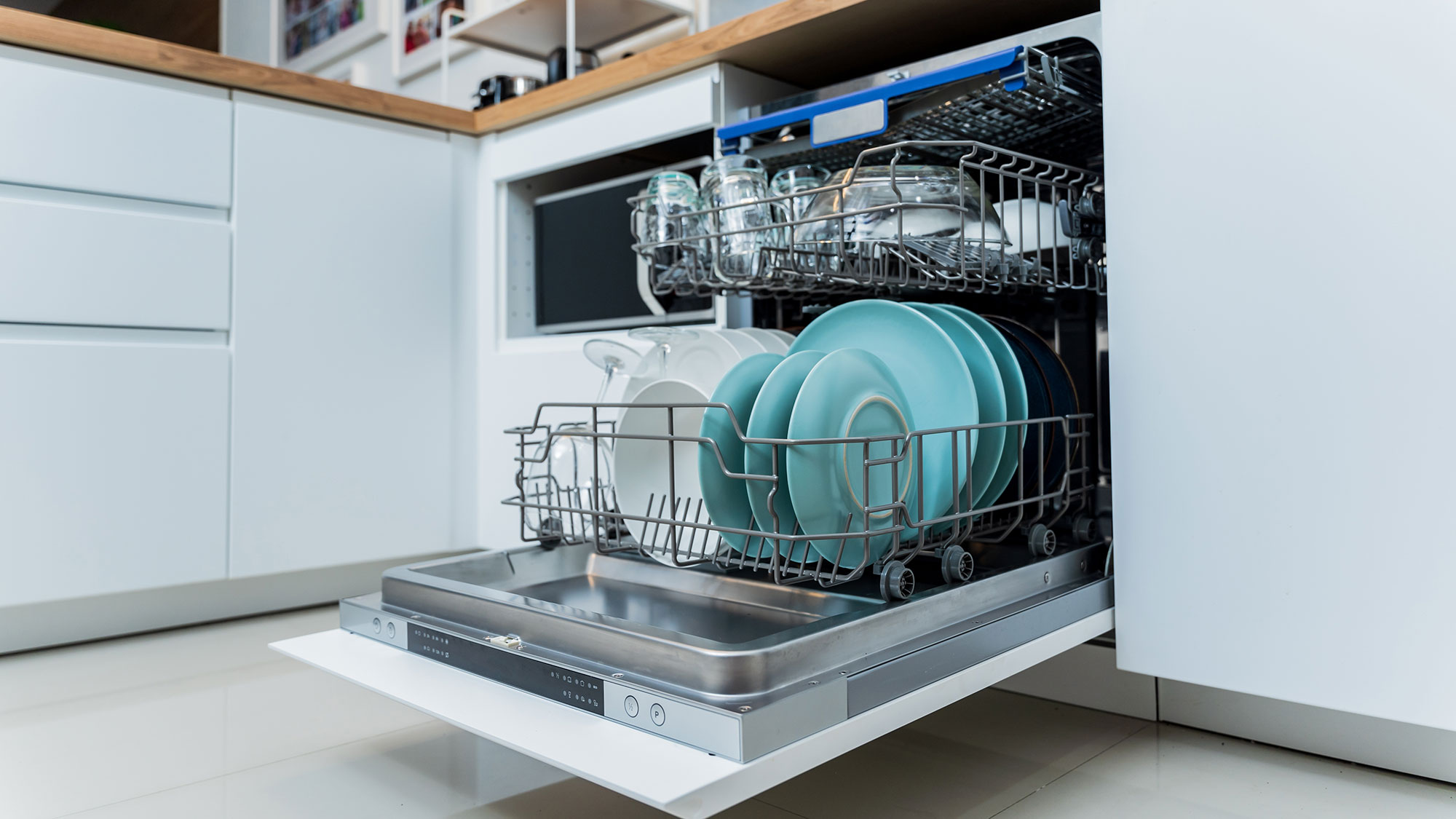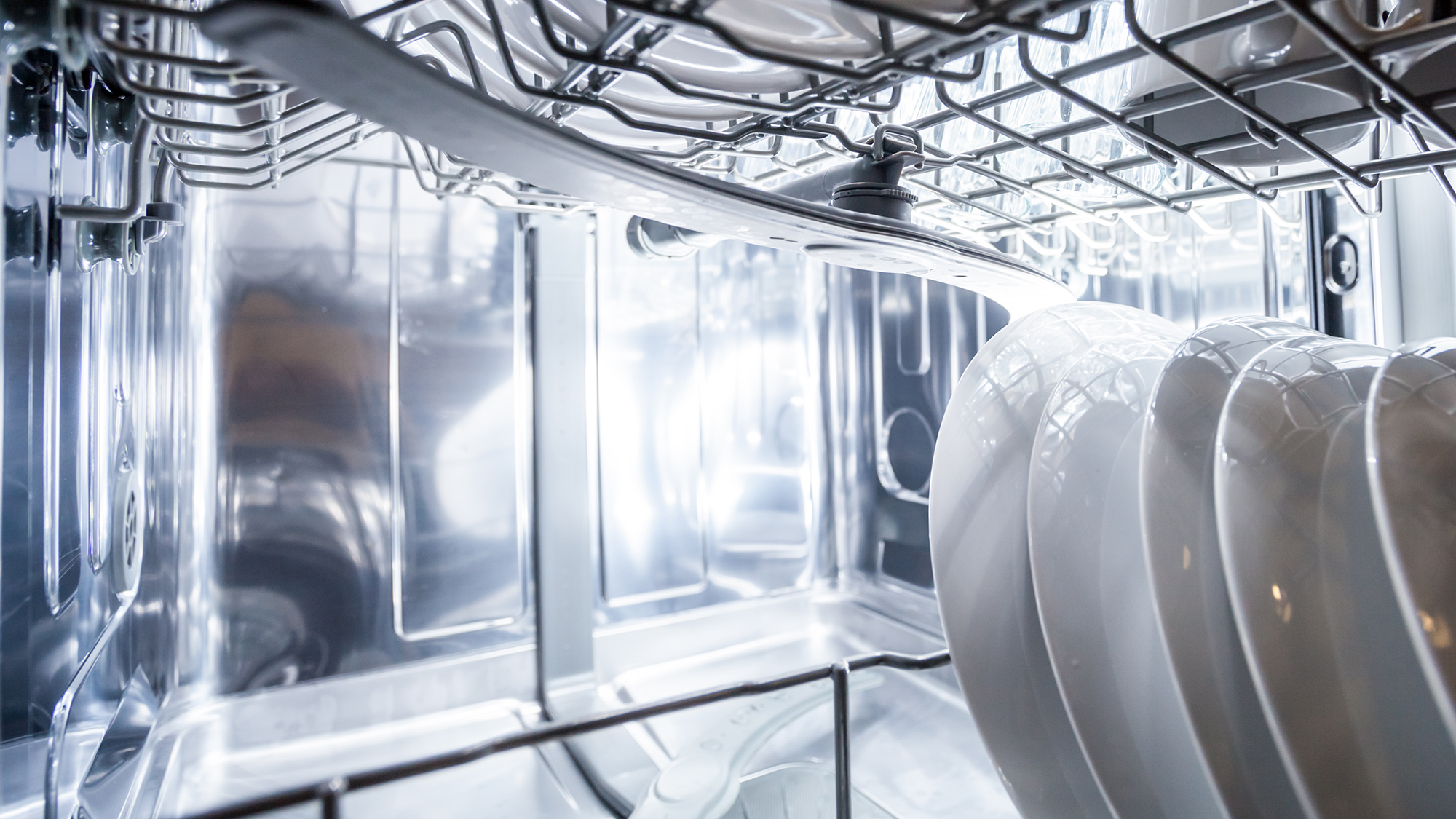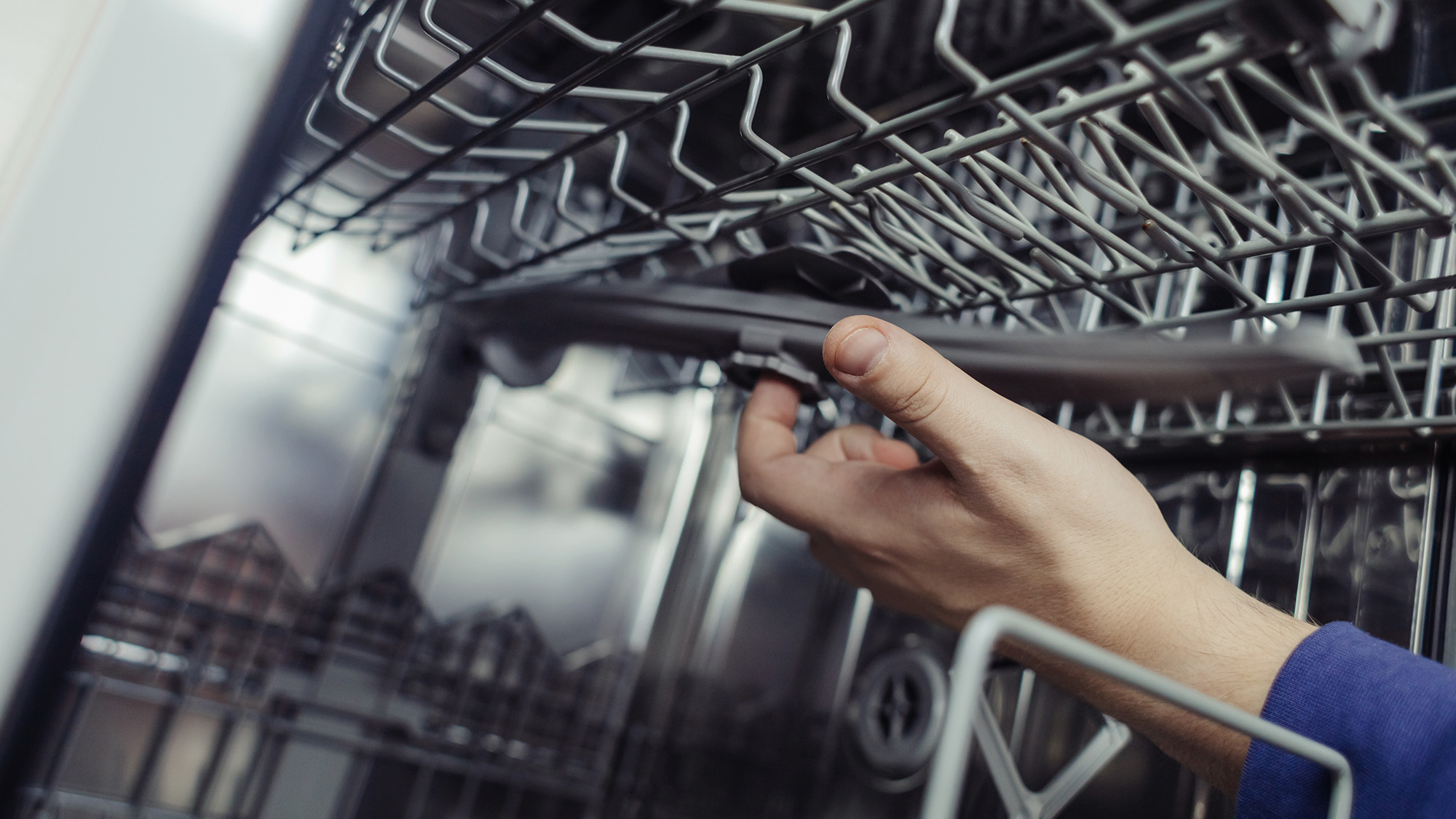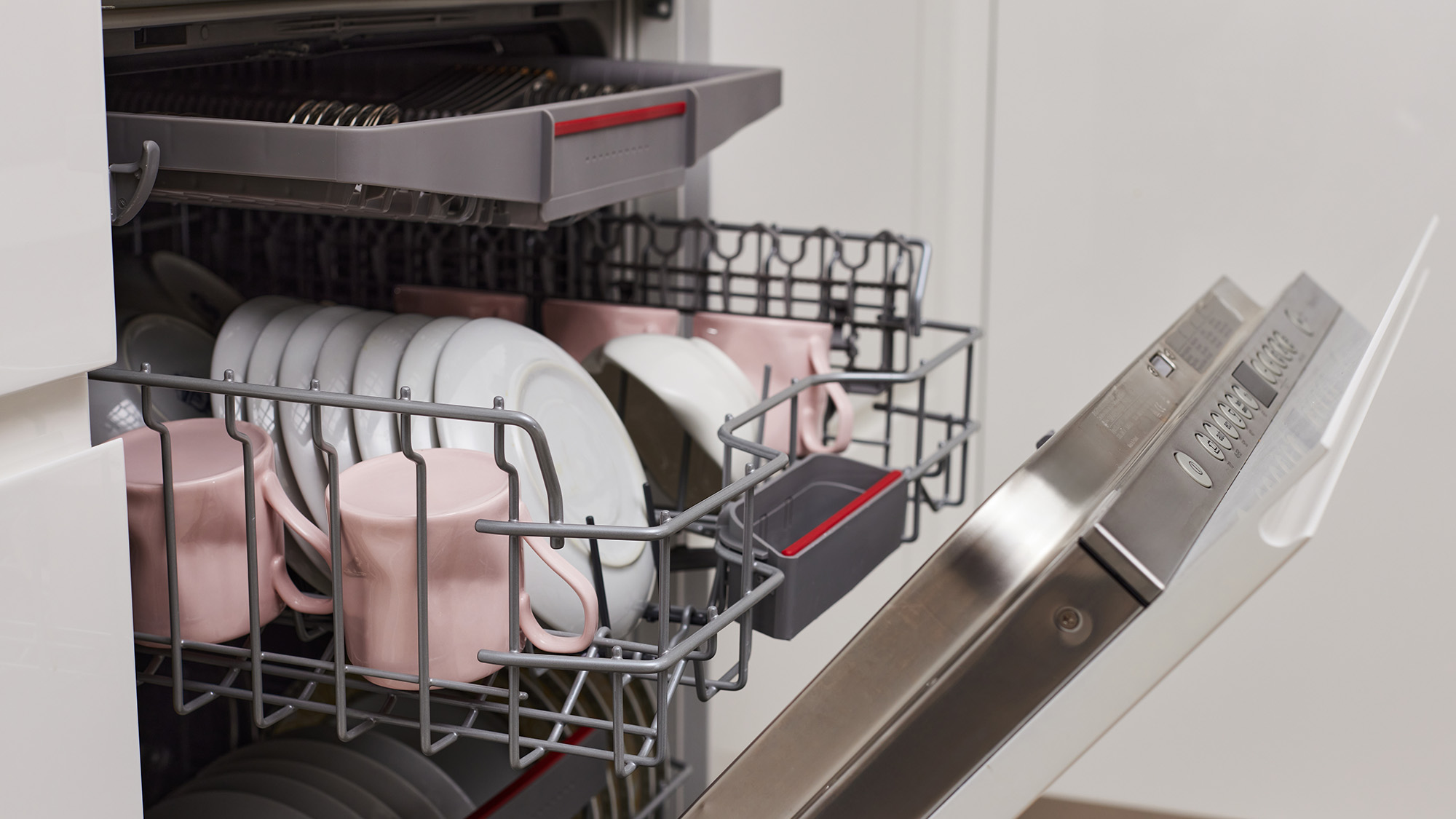
Apart from my washing machine, my dishwasher is one of the hardest-working appliances in my kitchen, not to mention myself, of course!
I rely on it to get my dishes hygienically clean and to save me time. I simply couldn’t be without one of the best dishwashers to help me clean up.
So, when my dishwasher makes strange noises or underperforms, I get worried. Is it human error, does it need repairing, or is it time to replace my dishwasher?
To help me decide, I asked appliance experts what the average life expectancy of a dishwasher is and when is it time to throw in the towel?
What is the average lifespan of a dishwasher?

Knowing the average lifespan of a dishwasher will give you a sense of whether it’s time to call in the repairman or go shopping. Glenn Lewis, President of Mr. Appliance, a Neighborly company, says, “The average lifespan of a dishwasher is about 14 years, but with regular maintenance and proper use, some units often last longer.”
Lee Gilbert, founder and appliance maintenance expert at Ransom Spares, says some dishwashers will last up to 15 years, and explains: “Higher end models, such as Miele and Bosch, and lower end dishwashers, which are well maintained or with low usage, tend to last longer.”
However, the lifespan can be much shorter. “Budget appliances and those with high usage will tend to last less than 8 years and sometimes as little as 4-6 years,” he adds.
So many aspects come into play when working out the practical lifespan of a dishwasher, including how well we look after our appliances. Jimmy Hiller, CEO and president of Happy Hiller, says, “Well-maintained dishwashers with regular filter cleaning and descaling can last up to 15 years, but in reality, it’s not that common. Many homeowners forget about routine maintenance, so most dishwashers start acting up after 10 years.”
Lindsay Zollman, consumer analyst at Hisense, agrees and says the life expectancy of a dishwasher will also depend on how frequently it’s used. “Light daily use, combined with simple upkeep, can help extend the life of a machine, while hard water or skipped maintenance often shortens it.”
When is it smarter to replace your dishwasher rather than repair it?

So, how do you decide when to replace your dishwasher? Zollman says, “It’s about performance, efficiency, and repair frequency. A dishwasher may technically still run at year 12, but if it’s not cleaning properly or driving up energy bills, it may be time to re-evaluate.”
Balancing act
It’s a case of whether it is more economical to repair or replace. Zollman explains, “There’s a balance between sustainability, budget, and practicality when it comes to replacing a dishwasher. For consumers focused on environmental and financial responsibility, keeping your dishwasher running well for as long as possible is often the goal, and regular maintenance is what makes that possible.”
Sometimes, a dishwasher replacement becomes the better long-term decision, with Zollman citing recurring repair costs, such as calling out a repair service more than once a year, or major component fixes, as a good reason to opt for a new one.
Gilbert suggests bringing some math into the equation when you’re working out and deciding whether to repair your dishwasher or replace it.
“Making the decision to purchase a new dishwasher instead of repairing should be based upon the dishwasher’s age, cost to repair, and previous issues and repair costs,” says Gilbert. He also suggests the following sliding scale to help you make the decision.
Years |
Maximum % spend of the replacement cost |
|
|---|---|---|
4-6 |
50% |
|
6-8 |
30% |
|
8+ |
20% |
When is it too late to replace a dishwasher?

Lewis is quite clear on when the time is right to invest in a new dishwasher, when replacement parts are no longer available, and says, “If parts are available, then it’s always worth trying to repair any dishwasher before throwing in the towel. That being said, there is a time when all things must go.”
So what dishwasher faults aren’t worth repairing? If your dishwasher is near the 10-year mark, Zollman says you should opt for a replacement if you experience the following issues:
1. The dishwasher no longer cleans or dries properly.
2. If you’ve cleaned the filters and spray arms, and performance is still slipping, internal parts may be failing.
3. There are visible signs of rust or water damage — these are often hard to fix and can lead to more serious issues.
4. The control panel is unreliable — if buttons stop responding or cycles don’t run properly, the electronic components may be reaching the end of their life.
However, as soon as your washing machine starts acting up, Zollman says don’t rush to replace it immediately, unless it is close to the end, or over, its expected lifespan. “Maintenance is often the most cost-effective and sustainable solution,” she says, “But when performance slips despite your best efforts — and repairs start piling up — it’s worth weighing the cost, the warranty, and the efficiency of upgrading.”
She adds, “One less dishwasher in a landfill can absolutely be a consumer-friendly decision, especially when it’s backed by smart ownership habits and thoughtful timing.”







